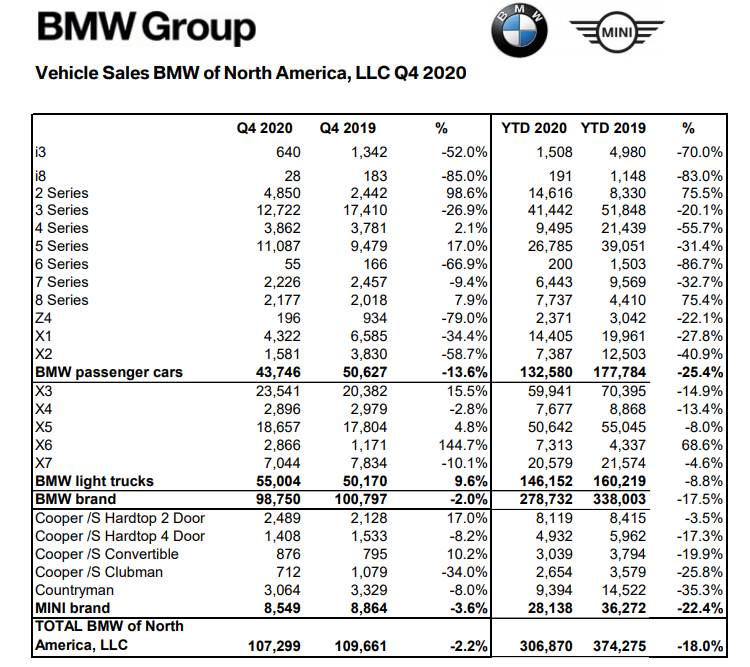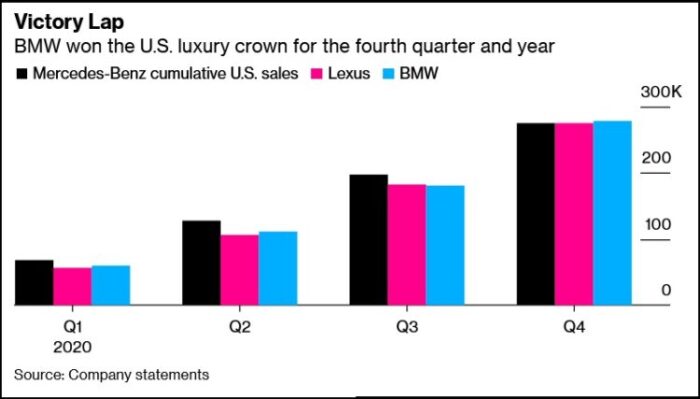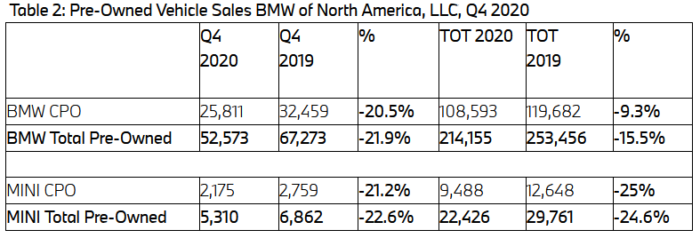
The final 2020 BMW sales numbers are in and BMW retained its luxury make crown in the U.S. market. Total sales were down 17.5 percent with 278,732 vehicles sold, and for much of the year it looked as if BMW could fall to third behind Mercedes-Benz and Lexus. But a big Q4 for BMW saw 98,750 vehicles sold, only 2 percent down from Q4 2019.

As you can see the big three were tightly bunched, with Lexus selling 275,041 vehicles and M-B selling 274,916. Lexus was down the least year-to-year at 7.7 percent, and M-B sales dropped 13 percent. Audi was a distant fourth at 186,620 sold. Tesla does not break out U.S. market sales but claimed to deliver almost half a million vehicles in 2020. Through the first nine months of the year BMW sold 116, 381 electric vehicles worldwide, an increase of 20 percent.
BMW maintaining its number one spot in this market was a real achievement but a sales tip of 17.5 percent is serious. One element hard to measure is how much low inventory levels due to halted production affected BMW 2020 sales. The company said that “improved inventory levels” contributed to the big Q4 sales push. So that implies that low levels were at least partially responsible for low sales earlier in the year, in addition of course to customers not being comfortable leaving their homes to shop.
Used car sales were also down so they did not seem to cannibalize new purchases:

Source: BMW of North America LLC
2020 is the first year that BMW SUVs outsold cars, 146,152 vs. 132,580. For the year cars were down 25.4 percent, trucks only 8.8 percent. The new G22 4-Series (two door 3-Series) sales were down 55.7 percent, which could have been due to inventory or to the car’s controversial front grill. G30 5-Series sales were off 31.4 percent, and BMW hopes a mid-cycle refresh will improve those numbers.
The first three months of 2021 will be very telling for BMW car sales. If 3-, 4- and 5-Series car sales don’t improve it’s hard to see how BMW will not increasingly become a SUV brand that also sells a few cars. That would reduce the incentive and resources for BMW’s “vehicle for every consumer profile” approach which has been so effective to date in this market.
Can the company simultaneously give Americans the SUVs they crave while also transitioning to an alternative fuel and powertrain future? As I’m stated before in these posts every BMW enthusiast has a stake in the company remaining financially healthy, even those of us who have never bought a new one.